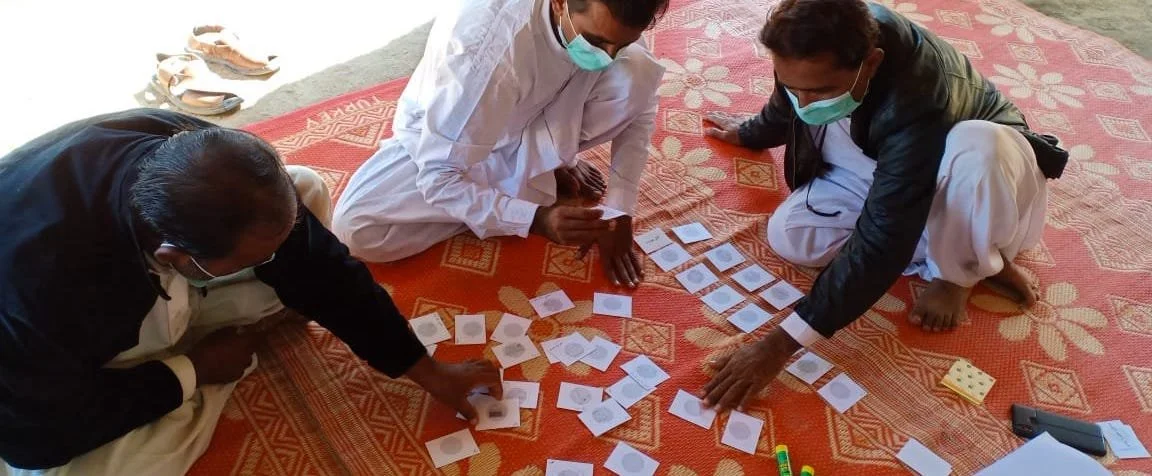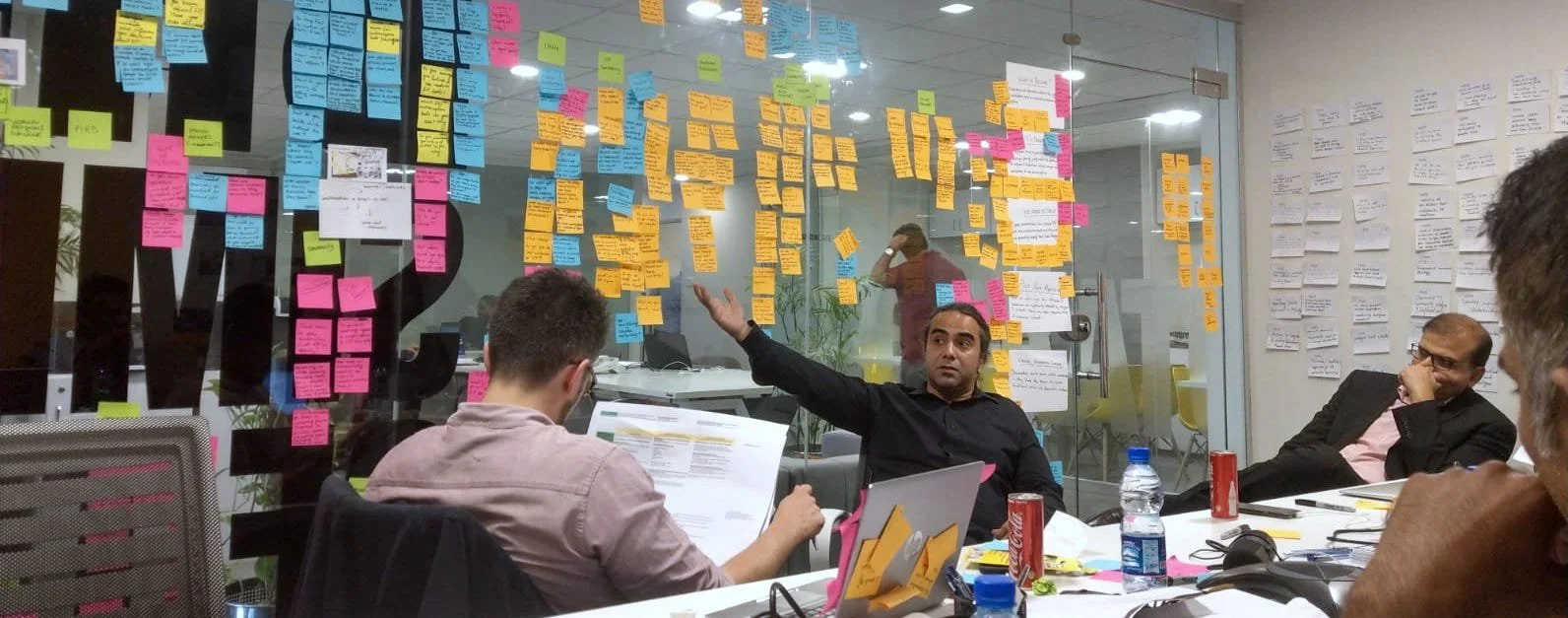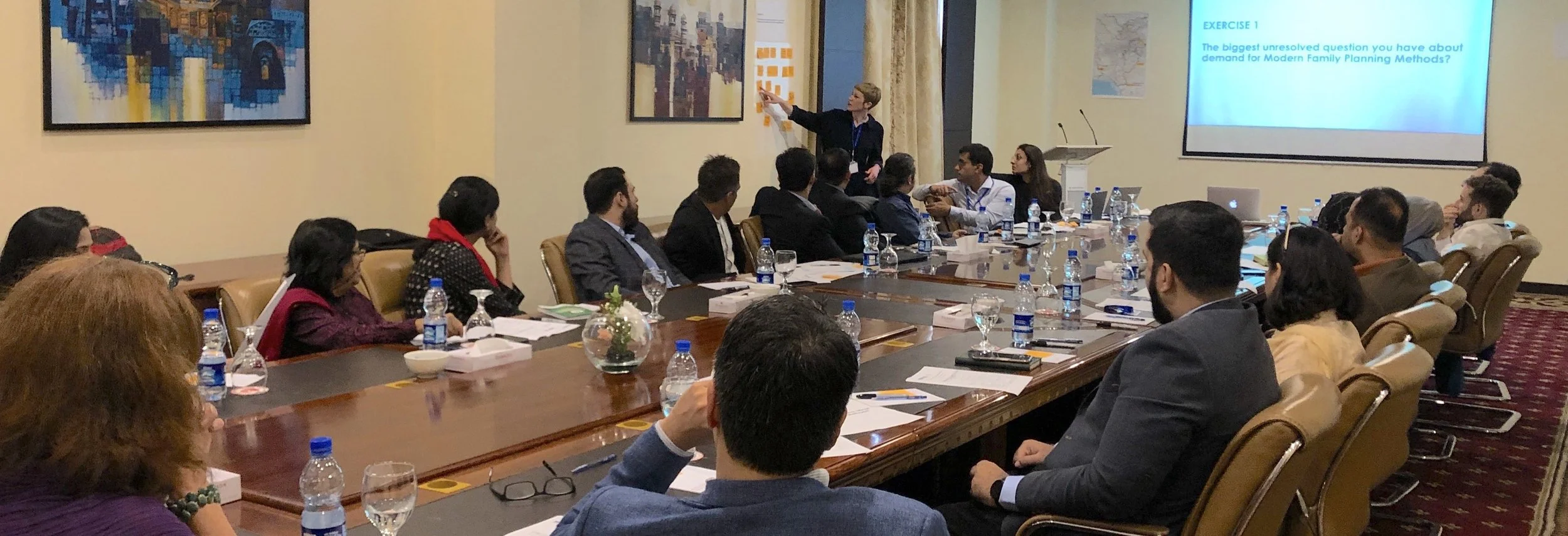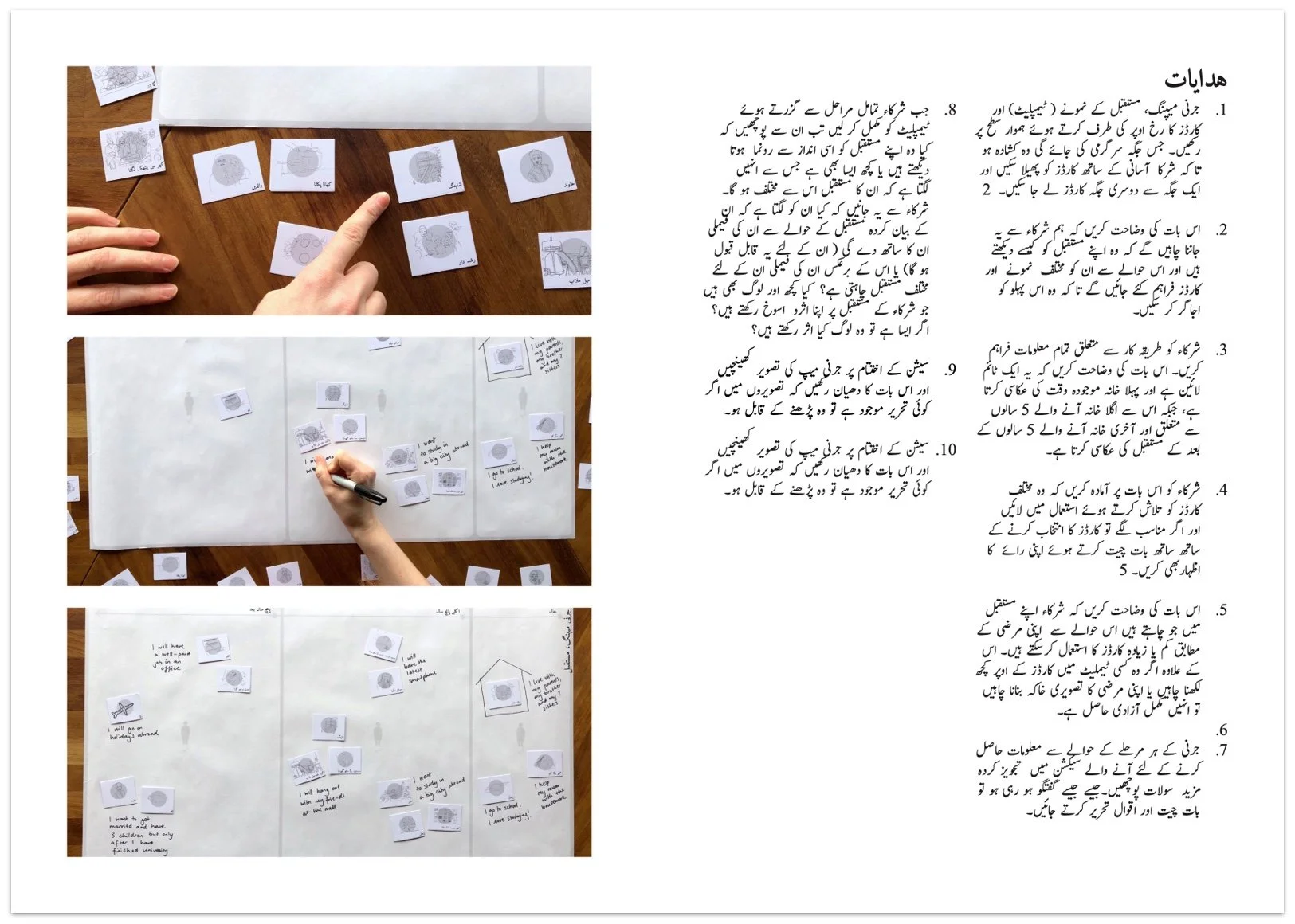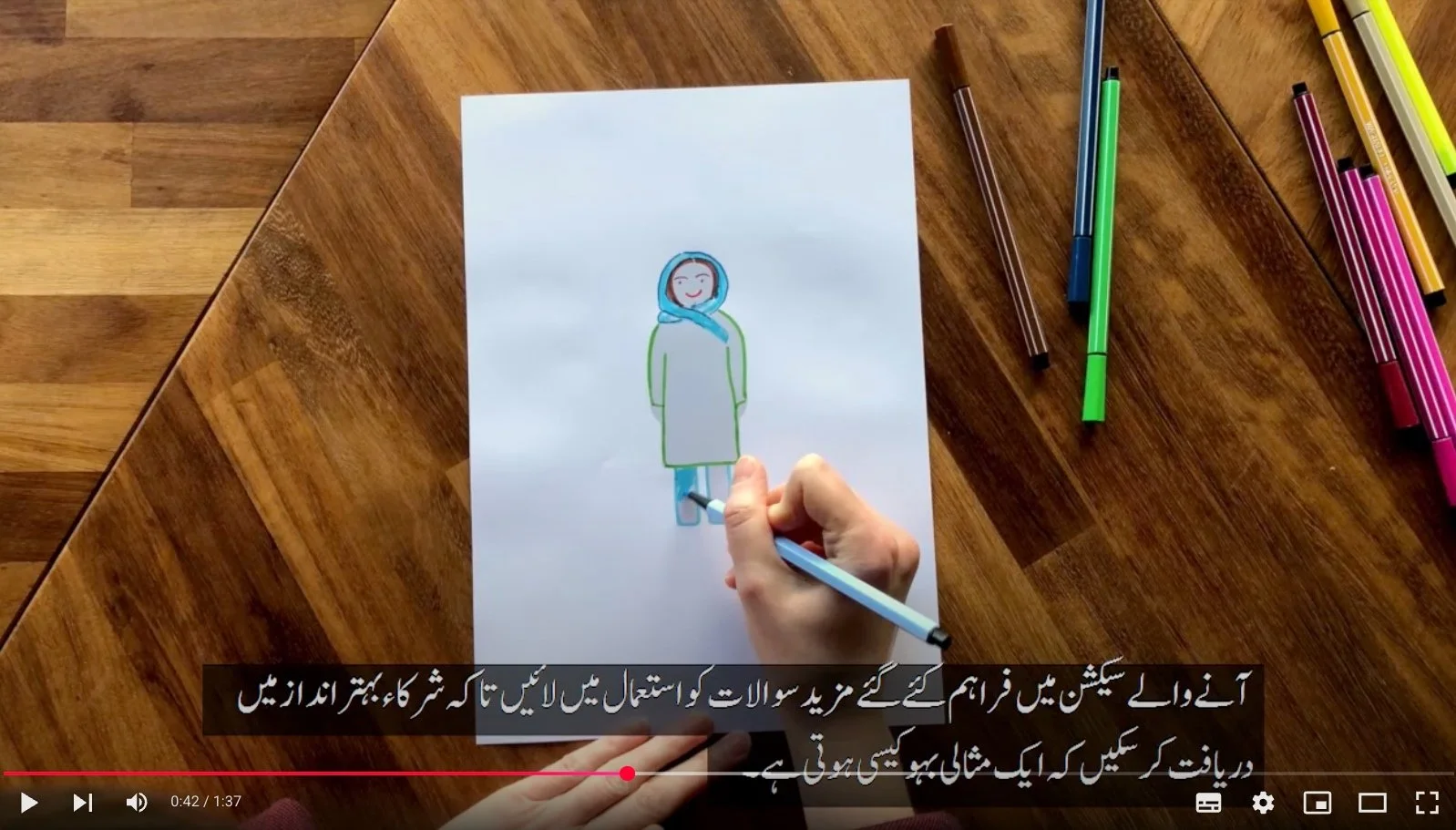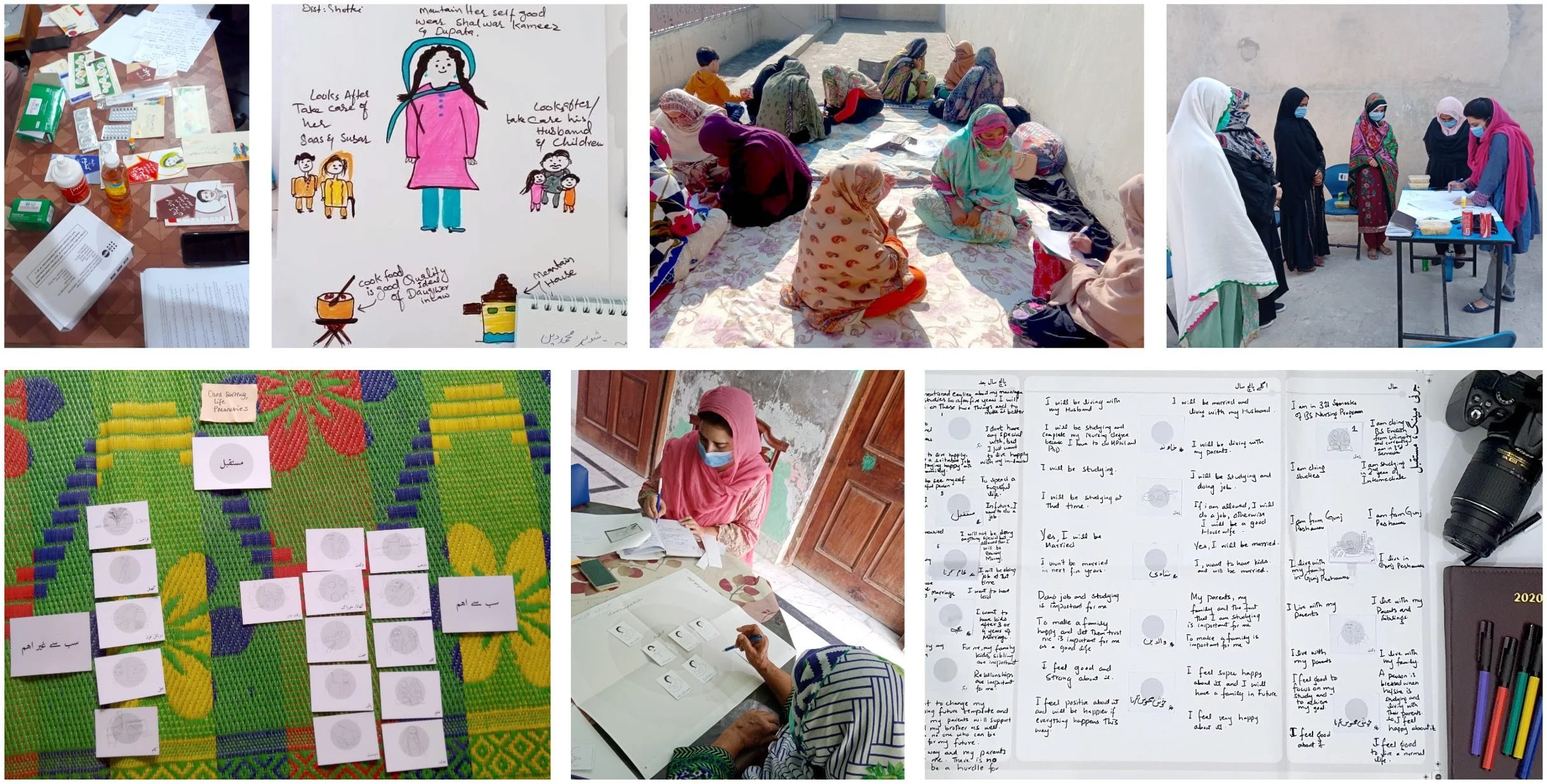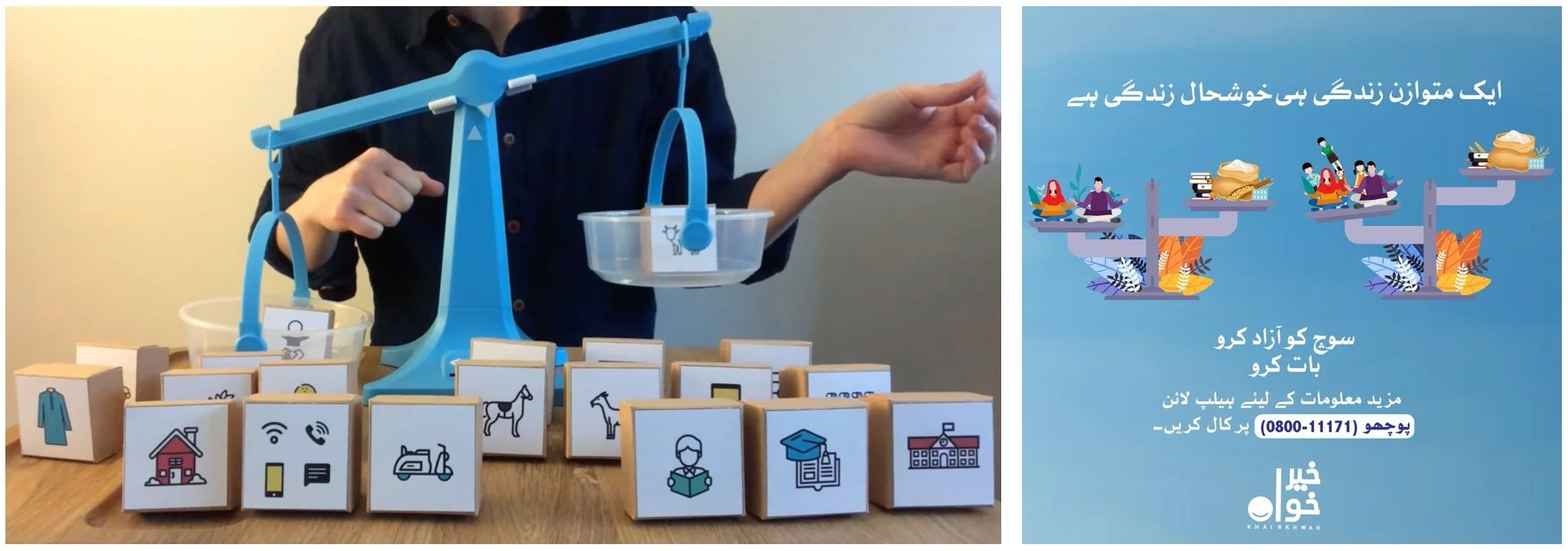Using collaborative design research to support family planning conversations in Pakistan
In 2019, Humanly partnered with M&C Saatchi World Services and Icarus Incorporated to deliver a £13 million research and communications project to address barriers to family planning in Pakistan.
This was part of the multi-dimensional, £90 million ‘Delivering Accelerated Family Planning in Pakistan’ (DAFPAK) programme funded by FCDO, which aims to increase access to quality family planning services across Pakistan.
Humanly contributed to the behaviour change communications (BCC) component, aimed at empowering women, particularly underserved groups, to safely plan pregnancies and improve their sexual and reproductive health.
The Process
The international project team included the London and Islamabad offices of M&C Saatchi World Services, providing global research and communications expertise; Icarus Incorporated, providing local research expertise and a network of researchers across Pakistan; and Humanly, providing human-centred design expertise and training.
The collaboration began with co-designing a culturally appropriate research approach to explore people’s lived experiences, aspirations, and attitudes towards family planning, including underlying barriers and motivations.
The team came together in Islamabad for a three-day research design workshop to define target participants, key research themes, and suitable methods. This drew on Humanly’s expertise in creative, inclusive, and participatory approaches, with a focus on cultural sensitivity and ethics.
The research approach was further shaped over months of collaboration, including a workshop in Islamabad with stakeholders from UN agencies, NGOs and government to build on existing knowledge, incorporate feedback, and avoid duplication of work.
Once an approach was finalised, Humanly created a ‘Researcher’s Toolkit’ to support the local research team, who were new to human-centred design research.
This included activity templates and detailed photo instructions demonstrating how each tool could be used. All research tools and guidance were translated and contextualised into Urdu by Icarus, and in areas of Pakistan where Urdu was not the dominant language, field researchers provided verbal translations into local languages.
Additionally, Humanly delivered training to Icarus’ team of researchers on human-centred design, and the methods developed for the research.
Originally planned as a three-day in-person workshop in Islamabad using a ‘train the trainer’ approach, the training was restructured due to sudden Covid-19 travel restrictions in March 2020.
The Humanly team rapidly developed a remote training programme, featuring a filmed introduction to human-centred design, 15 video tutorials outlining the research activities and tools developed for the project, and a test to consolidate learning and enable researchers to gain a certificate of completion.
The online course was designed for flexible access in people’s own time, accommodating researchers in areas with unstable internet in Pakistan. This ensured equal access to the training and allowed researchers to revisit materials as needed. This flexibility was especially valuable when the research paused for six months due to the pandemic, enabling researchers to refresh their knowledge before resuming fieldwork.
The research went live in October 2020, with six weeks of fieldwork conducted by Icarus’ team of researchers across Pakistan, with remote support from Humanly as required.
The research involved 159 participants in rural and urban settings, including married women and men; young unmarried people; mothers-in-law and healthcare providers.
15 different design research activities were used, including:
Mapping people’s life journeys and formative experiences, from early childhood memories such as children being born in their family, through to adolescence, engagement, marriage and having children of their own.
Social network mapping to explore who people trust and who they would seek advice from in different scenarios.
Shadowing, ‘show and tell’ and role play activities with healthcare providers to explore the support they provide and their typical interactions with clients.
The research produced over 300 pages of write-ups and over 200 photos and videos, all of which were analysed manually.
Humanly collaborated with Icarus to ensure accurate interpretation, resulting in the development of typical user journeys, optimal timings for introducing the topic of family planning, and opportunities for further development and testing.
A range of early-stage concepts were developed by Humanly around communicating and supporting conversations about family planning, to support with the development of a behaviour change communications campaign.
These included interactive, visual tools and activities designed to support community outreach activities in areas with low literacy levels.
Early-stage prototype and final campaign output with the message ‘A balanced life is a happy life’.
The Outcomes
A national team of researchers was upskilled in human-centred design research, growing local capacity.
By building local human-centred design capacity, Humanly contributed to a reduced reliance on international ‘experts’.
The co-designed research methods were successful in supporting researchers and participants to approach a taboo subject in a sensitive way.
Physical templates and prompts helped people to open up, creating a more informal, participatory environment compared to traditional interviews and focus group discussions.
The research generated new insights into unmet family planning needs in Pakistan.
Exploring people’s broader life experiences uncovered underlying motivations, beliefs, and opportunities. These revealed generational shifts, unexpected insights around private conversations between couples, and key drivers such as financial planning, highlighting the desire for a manageable family size to ensure quality upbringing and education.
The Impact
Based on the research, M&C Saatchi World Services Pakistan developed the award-winning KhairKhwah (‘well-wisher’) brand and media campaign, reaching over 95 million people by June 2024.
The campaign used TV, radio, print, social media, and community outreach activities in the most remote parts of Pakistan. These addressed taboos, sparked nationwide conversations, and raised awareness of family planning products and services. The campaign received endorsements from prominent politicians, including the President of Pakistan and the Minister of Health.
The campaign increased knowledge around family planning and reduced unintended pregnancies, unsafe abortions, and maternal deaths.
An endline survey to evaluate the campaign impact showed that 95% of the intervention group knew where to access modern family planning - 42% higher than the control group.
As a whole, the DAFPAK programme has to date averted 7.11 million unintended pregnancies, 2.31 million unsafe abortions and 5,412 maternal deaths.

